CCP's official ideology may be hampering China's rise
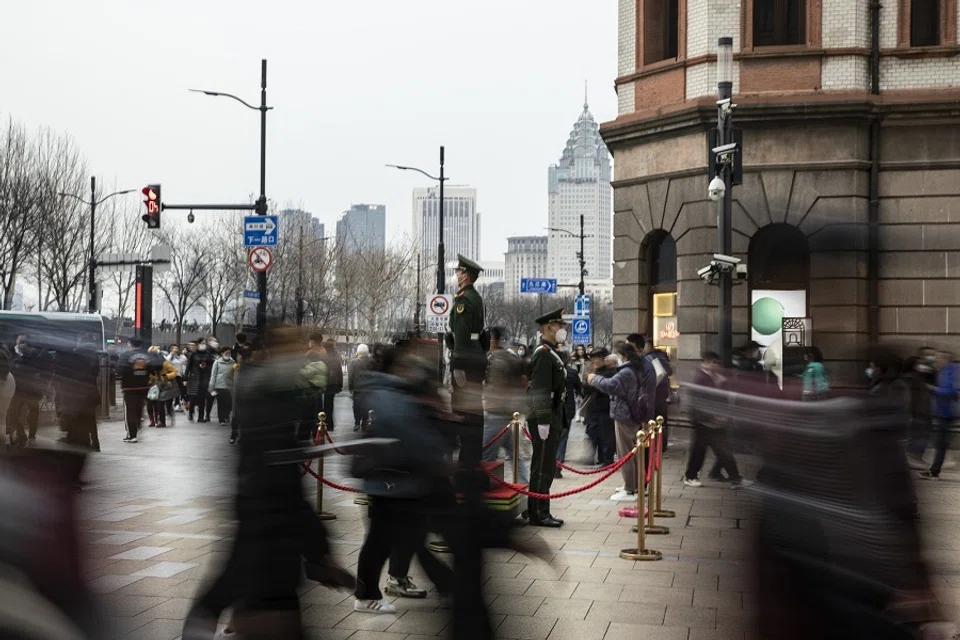
Ideology is a spotlight that shines a light on the objective world. While it only illuminates a very small area, these are matters deemed important and where people have invested most of their energy, resources and time - even though some of these matters may not be vital or essential.
Ideology dictates the main activities of a nation, which in turn, decides the fate of that nation.
US's spotlight shining on abstract issues
The light of American politics is always trained on some abstract issues: same-sex marriage, abortion rights, gun control, the extramarital affairs of political figures, "evil" regimes somewhere out there, and so on. A lot of energy, resources and time are consumed by these matters, and a constantly lengthening list of politically correct terms and taboos is produced in the process.
The result is social fissures and political extremisation, while a host of key livelihood-related issues are not getting the attention they should be getting. These issues include infrastructure building, the national debt, poverty and homelessness, the epidemic of mental illness, political reforms, racial relations, the quality of education, the cost of living, pollution, the structural upgrading of the economy, and so on.
America's relative decline is happening more due to excessive internal frictions, rather than by insufficient national strength. Once the problem of exhaustion from within is solved, the US will still have a robust foundation for its national strength to grow dynamically once again.
PRC's Marxism-Leninism misses some spots
Confucianism was China's spotlight through millennia of imperial rule. It was under its guidance that China developed an advanced civilisation that was a system unto its own. However, Confucianism did not cast its light on science, technology, industry and maritime trade, so the West pulled far ahead of China in the early modern period.
Marxism-Leninism is the Chinese Communist Party (CCP)'s spotlight, as it were. It had been highly effective during the revolutionary era. It drew a clear line between the Party and its enemies, helped to establish a strong organisation, and brought about unity in thought, will and action. The threefold unity played an important role in the war in which the CCP seized power, and it is the soul of the "whole nation" system (举国体制) that many in China are so proud of today.
However, the ideological spotlight seems to have missed highlighting some matters in the subsequent era of development. It left many blind spots, such that China was once again left far behind - this time by East Asian countries that adopted a capitalist market economy. In the end, China had no choice but to reform its own system and open up.
As ideological innovation was not catching up with reform and opening up, Deng Xiaoping came up with a stopgap: no more debates - anything goes as long as it gives the economy the necessary boost.
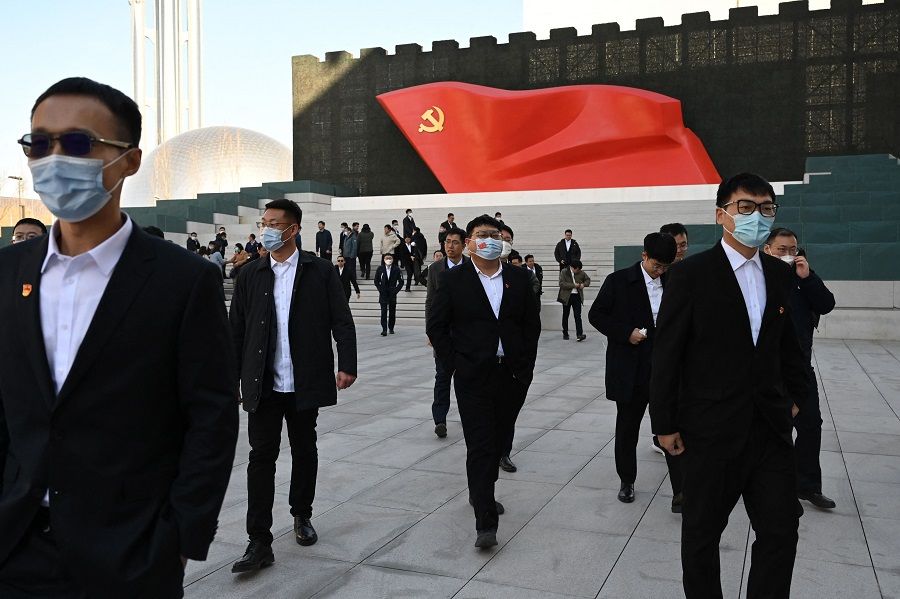
But the praxis of reform and opening up did not square with Marxism-Leninism, especially Mao Zedong Thought, so it ran up against strong resistance from within the Party. As ideological innovation was not catching up with reform and opening up, Deng Xiaoping came up with a stopgap: no more debates - anything goes as long as it gives the economy the necessary boost. That was the essence of his famous dictum about black cats and white cats.
Countering impact of marketisation with ideology
Reform through marketisation had a huge impact on the CCP's ideology. As Chinese society transformed, the work unit or danwei system fell apart, massive movements of people occurred, interests were divided, thinking and values diversified, social relations became more complex, and foreign influences became an important factor in life.
As a result, many of the Party's grassroots organisations existed only in name. The Party members believe almost every creed there was. Corruption became rampant, seriously threatening the foundation of the Communist Party's hold on power, so much so that the Party had to put in a tremendous effort to rectify itself.
In order to reintegrate Party members of different identities, strata, interests and thinking back into the unified organisation of the Party and restore the threefold unity, the only basis to work with was the communist ideology to which every member swore allegiance when they joined the Party. Thus, "ideological party building" became an important part of party building.
Ideology is crucial for the Party's organisation, internal solidarity, discipline, moral dictates, spirit, policies and political line, as well as the Party's relationship with the masses.
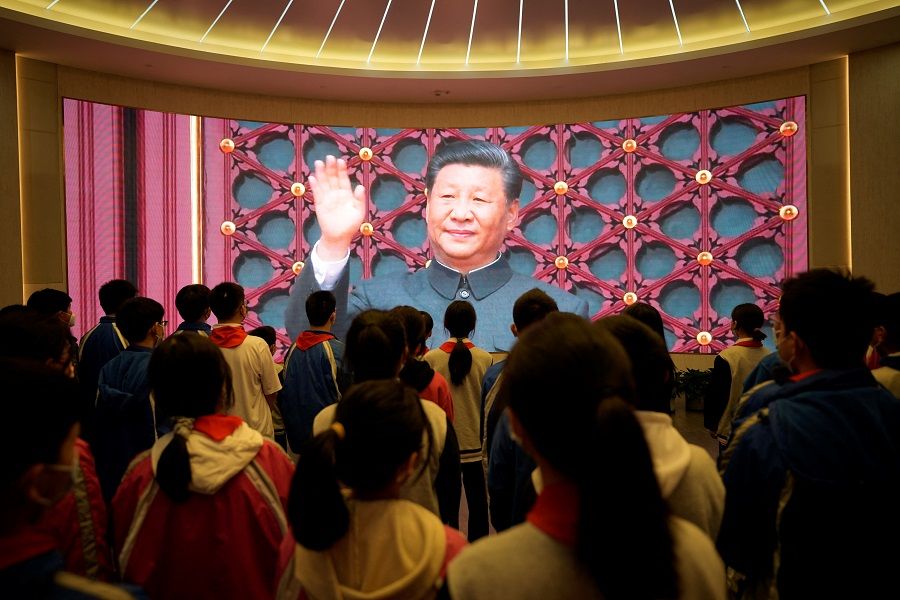
The hallmark of a vanguard party is its dependence on the official ideology. Ideology is crucial for the Party's organisation, internal solidarity, discipline, moral dictates, spirit, policies and political line, as well as the Party's relationship with the masses.
Since a one-party regime is not strictly subject to the constraints of either popular votes, market discipline or the law, self-management through ideology becomes critical. It is against this backdrop that one understands the CCP's declaration of "comprehensive, strict governance over the Party", and its embracing constant "self-revolution".
Ideology for the party may not benefit the country
The striking feature of this round of party rectification is to restore and reinvigorate the Party members' faith in Marxism under the slogan "staying true to our original aspiration".
"Faith in Marxism and communism is the lifeblood and soul of Communist Party members," says Xi Jinping. "'The communist ideals are loftier than the sky' - this statement vividly reflects how sublime faith serves to encourage we Communist Party members and spur us on powerfully."
The ideology that is highly effective for strict governance over the Party itself could be completely wrong-headed in shaping national policies.
He gives a stream of examples of the sacrifices and selfless commitment of revolutionary martyrs, claiming that, with a spirit such as theirs, the Party's internal solidarity and discipline, the combat strength of its organisations, as well as the threefold unity mentioned earlier, will all be readily established. Maladies like corruption, the use of power for selfish gains, factionalism, extravagance and decadence, and being out of touch with the masses will also be overcome consequently.
This is the organisational effect of ideology. However, it is possible for the organisational function of ideology to be divorced from the Party's external goals. The ideology that is highly effective for strict governance over the Party itself could be completely wrong-headed in shaping national policies. It may well have saved the Party but doomed the country.
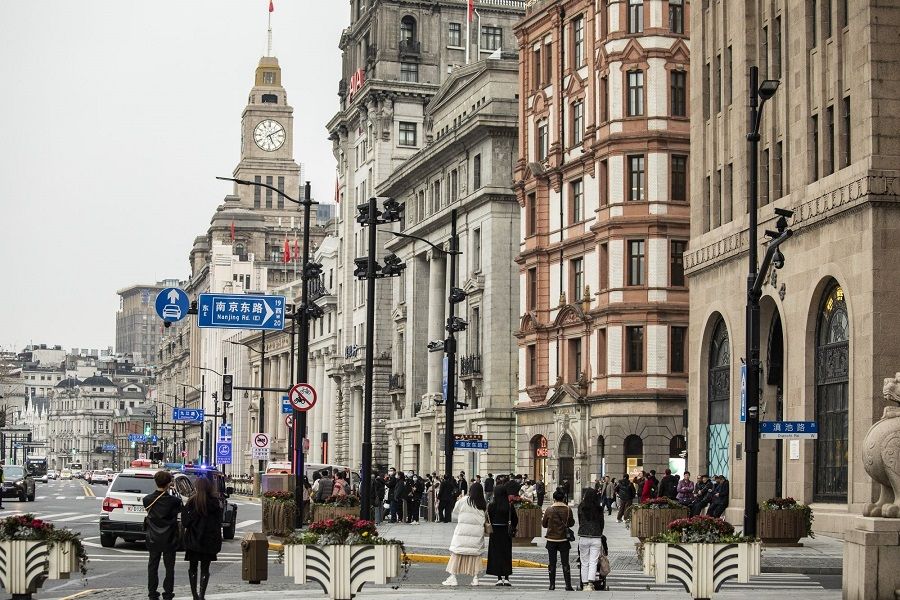
The ongoing ideological reversion brings back the one big issue Deng Xiaoping faced back in his day: how to make ideology consistent with economic and social realities. Deng had provided a basic framework, namely socialism with Chinese characteristics at the preliminary stage of socialism. However, it remains a mere skeleton that needs fleshing out before it can effectively guide policy making, so that the rise of China as a major power may proceed in the right direction.
This requires a lot of innovation to arrive at answers that Deng was not able to provide. Now, three decades after Deng, we ask: has the "Xi Jinping Thought of socialism with Chinese characteristics for the new age" or "21st century Marxism" been a success?
CCP's ideological innovation
Undoubtedly, the CCP is trying hard to innovate.
For example, it has gone against the "anti-feudal" position held since the May Fourth Movement in 1919, and is advocating the extensive assimilation and promotion of themes in China's cultural traditions. It claims that the ancient Chinese ideal of "the Great Unity" is highly consistent with communist ideals; that, way back in the distant past, the Chinese people had already come up with ideas that are significant for the modern world, such as the "union of Heaven and Man", the harmonious coexistence of humankind and nature. The affirmation of the "decisive role of the market in resource allocation" is of course the borrowing of the core ideas of neoclassical economics.
But is the CCP adequately innovative? To determine the answer, we have to see whether or not they manage to resolve the old issues and are sufficiently capable of dealing with the new ones.
With all these issues yet to be completely resolved, the seeds are sown for social conflicts and political unrest.
Inadequate to tackle old and new issues
The old issues that have been troubling the CCP since Deng Xiaoping's time include:
- the place of capitalists in the socialist market economy; - whether class struggle is still the "locomotive of history"; - whether private ownership is to be abolished; - how socialism is to be defined; - whether the dictatorship of the proletariat is still to be desired, and whether the labour theory of value is correct; - how nationalism relates to internationalism; - how to draw the lessons of the Cultural Revolution as well as from the collapse of states of the socialist camp in the 1990s; - how the problems of autocracy and personality cults are to be solved; - how the Marxist philosophy of struggle is to be harmonised with the notion of harmony in Chinese traditional culture; and so on.
With all these issues yet to be completely resolved, the seeds are sown for social conflicts and political unrest.
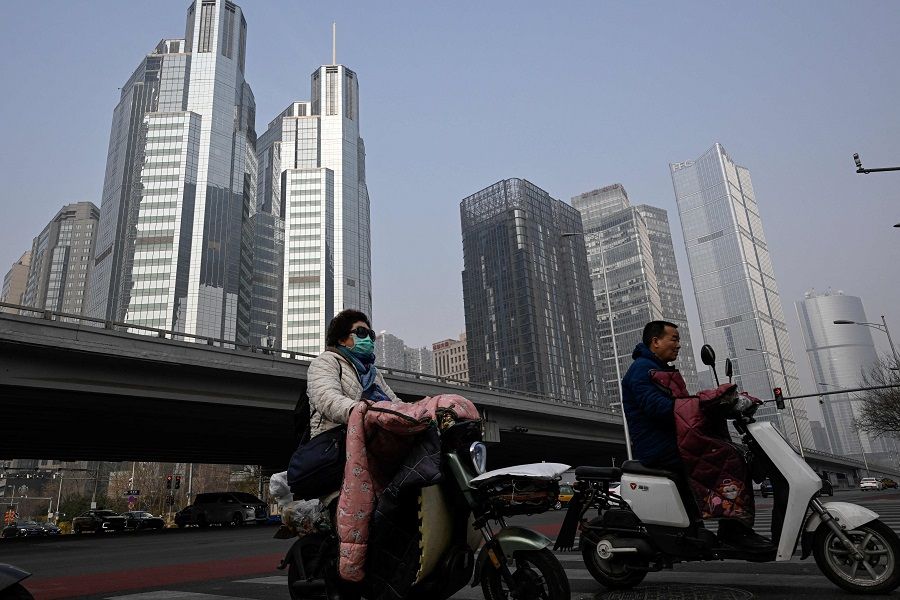
For many new issues that are constantly popping up, the Marxist canon contains no corresponding concepts, much less any theory for them. It has no answers for the following:
- the position and role of the middle class in history; - the reasons behind the rapid rise of certain East Asian countries after World War II (obviously it was not because "Marxism delivers"); - how artificial intelligence (AI) is going to affect the great, long-term goals of communism; - the impact of synthetic life and consciousness on dialectical materialism; - how humans will evolve with the advent of cyborgs; - the impact on democracy, the nature, form and role of the government of the knowledge economy; - the changes in the relations of production brought about by digitisation, "intelligentisation", automation and "networkisation"; - how quantum entanglement and the double-slit experiment are to be explained by materialism; - the impact of climate change on imperialism; - the relationship between consumerism and class struggle, and so on.
With regard to these new issues, no "ism" or "thought" - not even Marxism let alone Xi Jinping Thought - has yet formed a systematic theory and provided clear answers. The CCP's innovations up to this point in time have not gone beyond the confines of classical Marxism. In fact, they are often impeded by it.
If only the model of the last ten years is being sold to the world as "Chinese-style modernisation" without including the lessons from the preceding 30-odd years, it would be misleading on both the domestic and the international front.
Hard truths
We can also make a judgement from the results. In the decade since Xi's "new era" began, the international environment for the rise of China has been deteriorating rapidly. A new Cold War is unfolding in a new form. The "Chinese model" has lost much of its appeal. The prospects for the peaceful unification across the Taiwan Strait are almost non-existent now.
The average annual rate of economic growth during the period from 2013 to 2022 under the large-scale concentration of power was 6.5%, with a clear downward trend. In contrast, the corresponding growth rate during the period from 1978 to 2012 was 9.6%, which was obtained in the midst of the decentralisation of power, profit sharing, marketisation and opening up to the outside world.
The basic models for these two periods differ greatly, especially in terms of the situation of private enterprises and the entrepreneurs' confidence in their future. If only the model of the last ten years is being sold to the world as "Chinese-style modernisation" without including the lessons from the preceding 30-odd years, it would be misleading on both the domestic and the international front.
In any case, the uncertainties for the future of China's development have dramatically increased. Renowned economists in the West are already asserting that China's economy cannot possibly outstrip the US. Some politicians and commentators are even celebrating, claiming that the CCP's leadership is ruining its own advantageous position. (But, of course, the dramatic changes outlined above have complex reasons behind them, and cannot be totally attributable to ideology.)
No more official ideology
In this age of rapid change and uncertain future, perhaps there should not be an official ideology at all. Since situations are changing rapidly, any fixed form of ideology may prove too rigid. Given the current diversity of interests and values, it is unrealistic to still pursue the threefold unity utilised by the CCP successfully in the revolutionary war era. The democratic modus operandi of consultation, coordination, integration and compromising may be better suited for the present age.
What's more effective and pragmatic than faith in an ideology is constant innovation and the securing of a common understanding across the whole populace...
Perhaps the Singaporean model is more worth learning from. What it presents is an open ruling party of the elite, which conducts regular general elections and yet also maintains a suitable degree of concentrated power. It makes decisions effectively, and is able to plan for the long term and make preparations for foreseeable crises, but it does not revolve around any official ideology. The ruling party does not have a huge number of members or full-coverage grassroots organisations, nor does it pursue any ultimate historic goal. Everything it does is for national interests on the basis of consensual values. In the Elite Quality Report 2022, Singapore is ranked No. 1 out of 151 countries, whereas China is ranked 27th. Part of the reason could be the differences in ideology and party model.
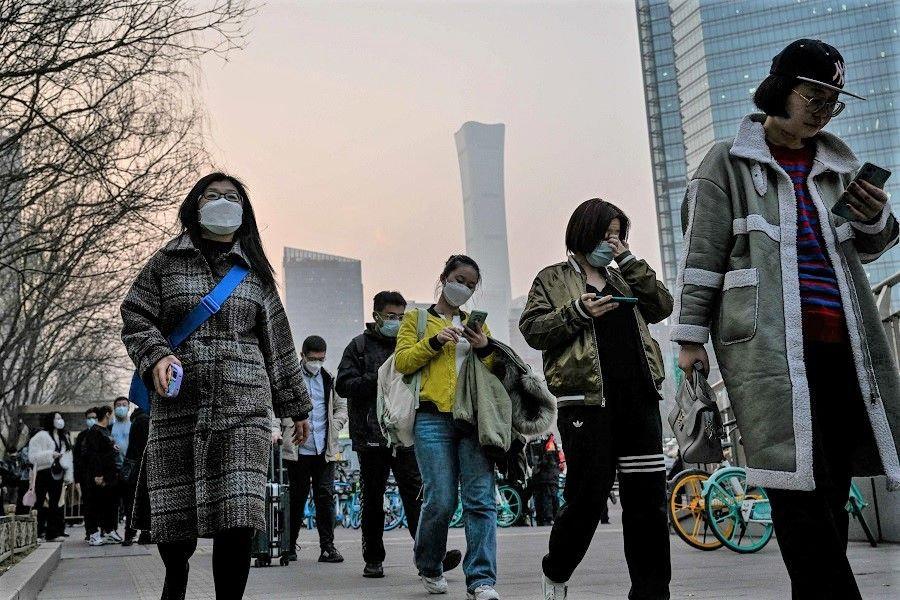
What's more effective and pragmatic than faith in an ideology is constant innovation and the securing of a common understanding across the whole populace, all founded on identifying and firmly adhering to common human values, so as to exercise far-sightedness and be able to adapt in a timely fashion.
No more 'great leader' model
There should be a focus on developing and perfecting the political system's mechanisms or functions for enabling consultation as well as collective inputs of ideas and efforts. Efforts should be put into enhancing institutional capacities for decision-making and execution, aided by AI, big data and the constant discovery of new methods and means in the new technological revolution.
It is not easy to come to a common understanding when social interests are so divided. China may easily lapse into the kind of endless quarrels and mutual vetoing that the Western democracies are mired in. Chinese-style democracy should have different institutional choices.
What needs to be abandoned resolutely is the "great leader" model. That's because once mistakes are made within such a model of operation, they can have long-term, comprehensive and catastrophic consequences, much in the way Putin ruined Russia's national fortunes.
Only decision-making through collective wisdom can last for long and be reliable. As long as the decision-making mechanism is sensible and effective, with ample room provided for policy deliberation and error corrections, the consequences of the mistakes made by not-so-great leaders can be minimised. A political model of this sort is more agreeable to the world at large, hence reducing the resistance and obstacles on the road to China's national rejuvenation.
This article was first published in Lianhe Zaobao as "意识形态与国运".
Related: What is China's 'new era'? [Part 2] | China's big hurdles returning to the forefront of civilisation | Xi's CCP practises Leninism of the 21st century. But could it end up as empty talk? | Xi Jinping's misguided return to ideology | China wants to create a new democratic system. Is that possible?
